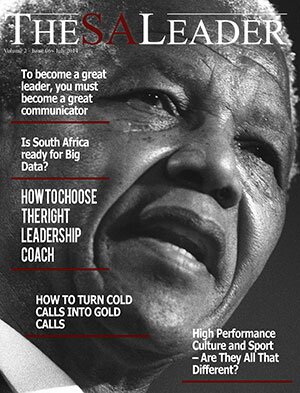Occasionally I wonder if I have the right to attack large successful companies for the appalling customer service and experiences that we all have on a day to day basis. That apprehension, I am happy to tell you, doesn’t usually last for more than a few seconds. When I criticise companies – and especially large, resource-rich companies that do whatever it takes to put smaller companies out of business - it’s because they deserve it. All the “new” stuff that has been introduced works well to make the company richer, but does nearly nothing for customers.
They deserve our criticism because they forget that the purpose of a business is to create, keep and take care of their customers who after all are the reason that food is put on the table every night.
I’m not suggesting that all big companies are bad…
- Through economies of scale they are able to offer products and services that customers desire efficiently and possibly at a lower cost than the small specialists. (This is not always true, because small businesses are often able to do the equivalent and better with lower overheads.)
- Large businesses are able to widely offer and distribute products and services to a larger group of customers, and, in many cases, offer customers greater convenience by being able to buy a bunch of different things at the same location, such as in FMCG retail.
- They are disciplined enough through their processes and systems to remain in business for a longer period of time than many smaller competitors that fall by the wayside.
- They mostly create employment and benefits for hundreds, perhaps thousands of people, not only employees, but also suppliers and support companies.
- They have the capacity and resources to improve many things in the world by developing new offers, for example, or building the skills and competences of their people - if they choose to do so.
But they also usually make a handful of shareholders enormously wealthy. (Oxfam recently published some staggering numbers about wealth. The top 85 wealthiest people in the world, led by Mexican media billionaire Carlos Slim, are together wealthier than the whole bottom half of the 3.5 billion poorer people. The top approximately 1% of richest people, some 7 million citizens, in fact are wealthier that the other 99%. That just doesn’t sound right when five children die of hunger every one minute.
If I felt that I was getting a good deal, I wouldn’t mind. But I’m not. I feel ripped off when I buy products and services which, if I made or did myself, would cost a quarter of what it costs to buy. I get treated appallingly by demotivated and frustrated employees that feel embarrassed, helpless and disempowered to help.
What’s changed to create these great opportunities for smaller businesses? Many factors have forced businesses to re-examine the way they operate, but perhaps the most significant is that customers have changed. As Chris Anderson put it in his book The Long Tail, “The ants have megaphones now.”
“Yes, Aki,” you may be saying, “But you do have a choice about where and how you spend your money.” Well, maybe. One of the most dramatic business evolutions has occurred in the retail pharmacy sector, where the small independent pharmacists have been decimated by large retailers. The results? Awful service, no personal touch, no knowledge of who I am, and a bunch of miserable pharmacists and assistants who don’t really want to be there. This is repeated in all other industries.
The answer lies in hungrier, focused smaller businesses. While they may not have the advantages that are offered by their large counterparts, they have a number of characteristics which big businesses will find impossible to imitate:
- They generally don’t have vast overhead costs that make products and services more expensive.
- They are more responsive and flexible so they can customise products and services for their clients. They celebrate innovation in products, service, delivery, and even in promotion and branding.
- This also allows them to choose which customers they can best service, rather than being forced to serve the mass markets.
- The same flexibility allows them to disregard “market” prices and give customers a great deal.
- They find it easy to listen to and remember their customers, and develop relationships and trust.
- All employees can focus on the quality and service issues that differentiate them from their bigger rivals.
I’m a great believer in small businesses, and there is no doubt in my mind that the hope for the world’s economy lies in promoting these. As one of the millions of Facebook quotes goes,
“If you buy from a mom and pop business, you are not helping a CEO buy a third holiday home. You are helping a little girl get dance lessons, a little boy get a team jersey, a family to pay a mortgage, and a student to go to university.”

















